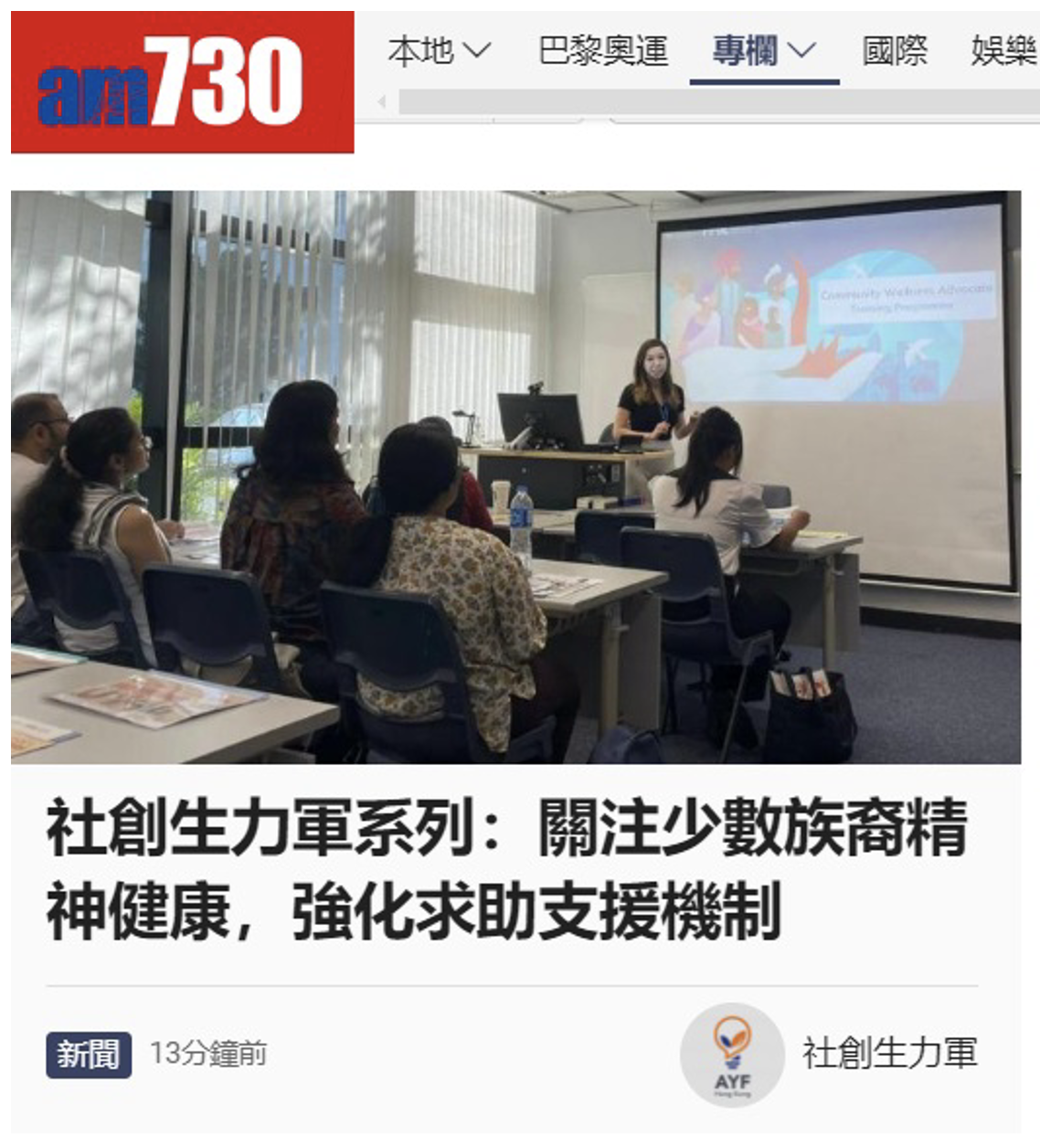am730 reported in a contributed column on an important interview with Chan Ying-tung Cassy, Project Manager at the Hong Kong University of Science and Technology (HKUST), who discussed compounding findings from the Mental Health Program team with RTHK's Community Involvement Broadcasting Service (CIBS) “The Age of Social Innovators 2.0”.
Highlighted in the column, Chan pointed out a significant gap in mental health awareness among ethnic minority communities, where many individuals expressed unfamiliarity with the term "mental health." She detailed the various barriers to seeking help, including cultural and language challenges, financial constraints, and the stigma that often prevents individuals from accessing necessary services.
Read the news in the link below:
Barriers to seeking help are significant, with cultural and language obstacles, high costs, and busy schedules cited as the primary reasons ethnic minorities hesitate to access mental health services.
Financial constraints influence the decision to seek help, as the high costs associated with mental health care can make it an unfeasible option for many individuals facing economic challenges. This perception of mental health services as an additional financial burden can lead to delays or avoidance of necessary care, compounding existing issues.
Stigmatization further complicates the issue; individuals with mental health problems often face negative judgment within their close-knit communities, leading to shame and reluctance to seek help.
Currently, mental health services in Hong Kong predominantly cater to Cantonese speakers, with limited availability in Putonghua and English. This language barrier poses challenges, particularly for individuals less proficient in English, who may rely on interpreters, affecting the therapeutic environment.
Trust is essential in counselling, and ethnic minorities often prefer counsellors who share their language and cultural background. Unfortunately, the number of such counsellors in Hong Kong is limited.
To address these gaps, the project team suggested for increased government support to train counselors fluent in ethnic minority languages. Initiatives could include promoting mental health awareness through films and workshops conducted in native languages. By fostering a culturally sensitive approach, the government can help bridge this significant divide and improve mental health outcomes for ethnic minorities.
For enquiries, please contact us at emmh@ust.hk
Address:
The Hong Kong University of Science and Technology
c/o Division of Public Policy (PPOL)
Room 4384, Academic Building,
Clear Water Bay, Kowloon, Hong Kong
